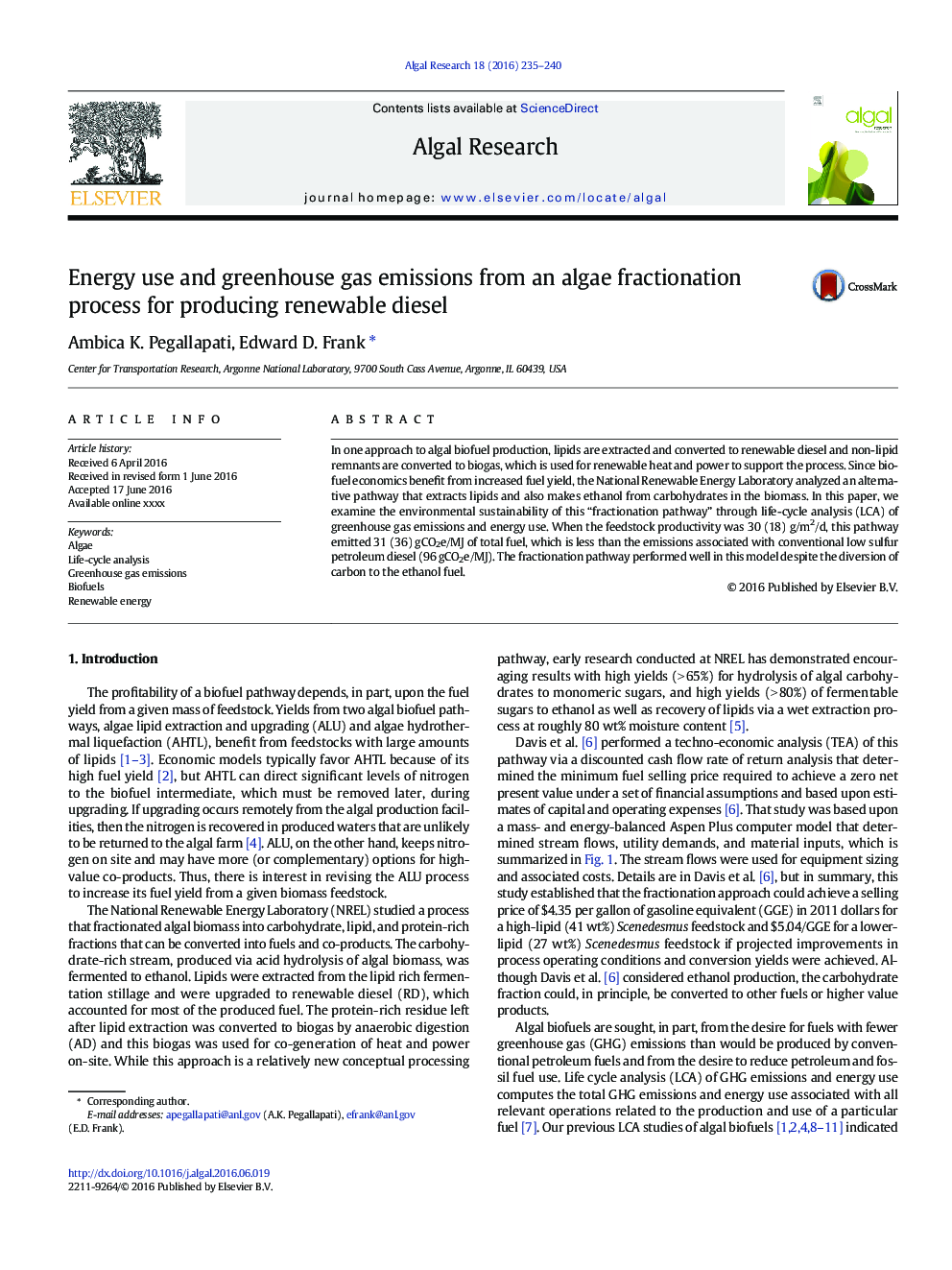| Article ID | Journal | Published Year | Pages | File Type |
|---|---|---|---|---|
| 8086798 | Algal Research | 2016 | 6 Pages |
Abstract
In one approach to algal biofuel production, lipids are extracted and converted to renewable diesel and non-lipid remnants are converted to biogas, which is used for renewable heat and power to support the process. Since biofuel economics benefit from increased fuel yield, the National Renewable Energy Laboratory analyzed an alternative pathway that extracts lipids and also makes ethanol from carbohydrates in the biomass. In this paper, we examine the environmental sustainability of this “fractionation pathway” through life-cycle analysis (LCA) of greenhouse gas emissions and energy use. When the feedstock productivity was 30 (18) g/m2/d, this pathway emitted 31 (36) gCO2e/MJ of total fuel, which is less than the emissions associated with conventional low sulfur petroleum diesel (96Â gCO2e/MJ). The fractionation pathway performed well in this model despite the diversion of carbon to the ethanol fuel.
Related Topics
Physical Sciences and Engineering
Energy
Renewable Energy, Sustainability and the Environment
Authors
Ambica K. Pegallapati, Edward D. Frank,
